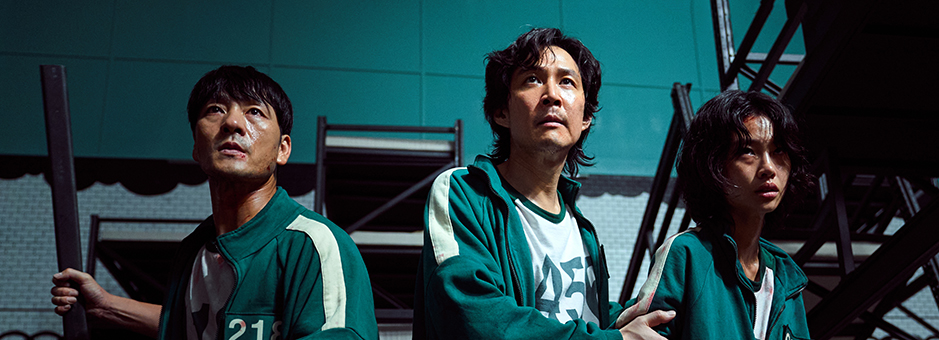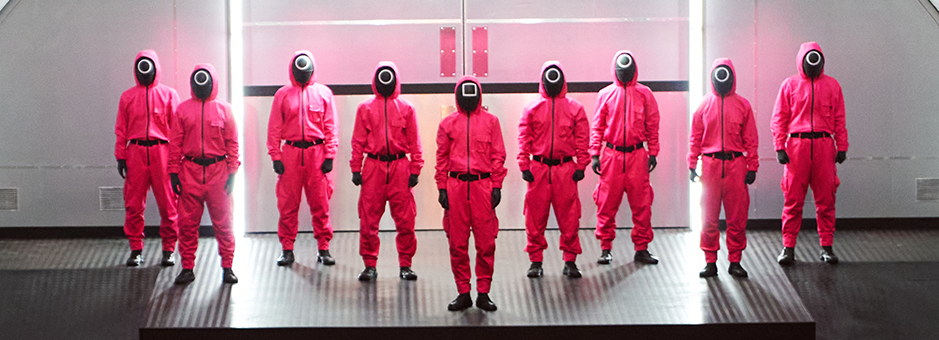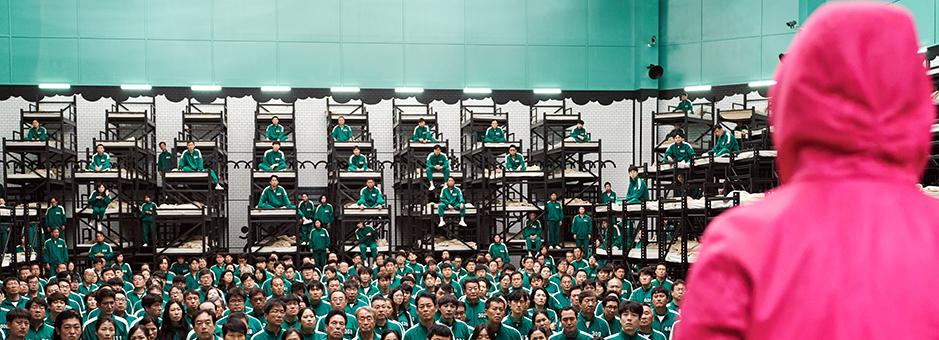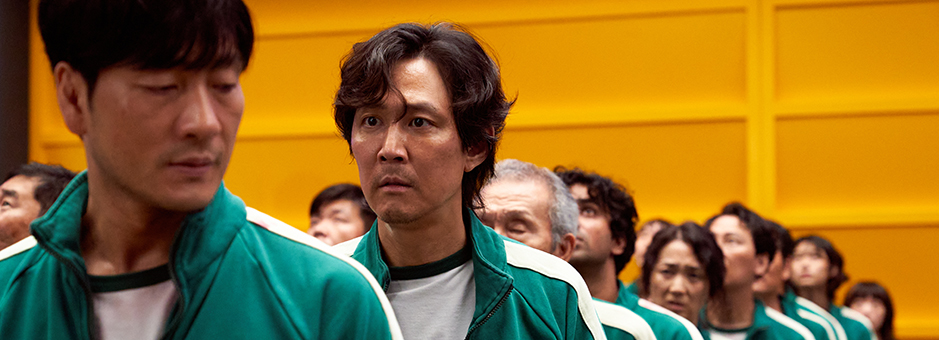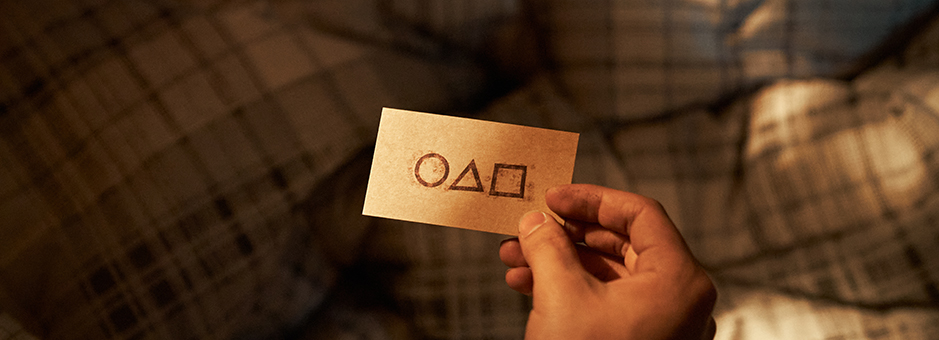Case Studies
Grading the vivid dystopia of Squid Game
South Korean survival drama series Squid Game revolves around a group of fictional contestants competing in deadly children’s games for money. Most recently winning three Screen Actors Guild Awards – and with many other awards and nominations – the show pulled in 1.65 billion hours of viewing in the first 28 days after its release, making it Netflix’s biggest original series launch in history.
FilmLight went to talk about the colour grading process and the vivid contrast colour palette depicted in this popular TV show with the series’ colourist Kim HyungShek at Westworld.
How did you come to this project? And at what point did you get involved?
Squid Game contains many CG cuts that had to be represented realistically, so it was essential to collaborate with the VFX team from the beginning of production. I think I was given the honour to participate in Squid Game because I had worked with the director Hwang Dong-Hyuk about 10 years ago on the film Silenced and more recently on Bugs Attack.
Squid Game has a very vibrant and colourful setting while maintaining a dystopian feeling. Can you tell us what references you were given to create your grade?
I didn't have any references specifically for the grade. There is a huge difference between the scenes set in the contemporary space of Korea and the game setting. I graded the area outside of the game to give it a more ordinary feel. The game set, however, was very bright and vivid, so I put a lot of effort into maintaining the balance so that the more saturated colours were not over-emphasised, and the production design and lighting from the shoot could shine through.
Can you tell us more about the development of the look and how Baselight helped you achieve it?
At first, I used the Blend operator to mix layers with the details and contrast of the shot, then stacked layers and continued the detailed grade work. Baselight's Dkey operator was very convenient to work with, as it was very quick and effective when working on the contrast between the game admin’s red uniform and the contestant’s green uniform.
What was the most challenging part of the project?
When I first started grading, the cinematographer said that they wanted the contrast to be similar throughout. However, the impactful scenes would be different. It was complicated to grade a series of almost nine hours in length while keeping these factors in mind.
How long did you spend on the grade?
Each episode required a different amount of time for grading, as the amount of CG cuts for each episode was different. The first pass at the grade took place over ten days before the CG cuts came in with the overall sketch feeling, and then it was another three days for each episode.
What was your reaction when you heard that the series was about to become the most watched show in Netflix history?
To begin with, as there were many Korean elements, I didn't know it was going to be this good.
Squid Game’is based on a traditional Korean children’s game that even young people do not know well in Korea. I was worried about whether I would understand it well, but I am grateful that many people worldwide are interested in it and have had fun watching it.
Netflix has seen a remarkably successful expansion into the South Korean market – any thoughts about this?
Fortunately, Netflix is expanding its investment in Korean content in earnest, and the results are promising. It is delightful that Korean content, both film and drama, can be seen and enjoyed by viewers in other countries through Netflix.
“I graded the area outside of the game to give it a more ordinary feel. The game set, however, was very bright and vivid, so I put a lot of effort into maintaining the balance so that the production design and lighting from the shoot could shine through.”




